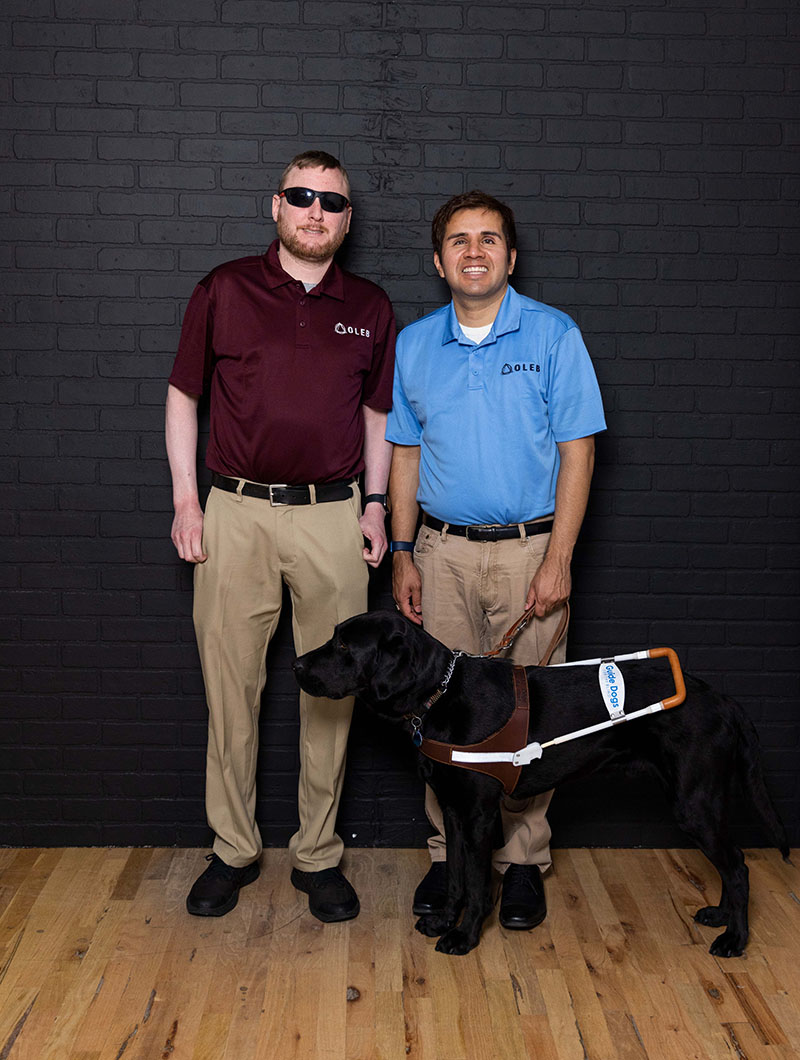11/17/2023 1:04:18 PM

When Belo Miguel Cipriani needed to purchase ergonomic workstations as an accommodation for an employee with a disability, he decided to learn more about a new program launched this fall by DEED. The new, first-of-its-kind Employer Reasonable Accommodation Fund (ERAF) reimburses small and mid-sized Minnesota businesses for the cost of accommodations like wheelchair ramps, assistive tech, ASL interpreting, and yes, standing desks and ergonomic chairs. Cipriani's was the first application to be processed by the new program.
Cipriani himself is quite familiar with the work of expanding access for people with disabilities. His company, Oleb Media, provides accessibility testing, remediation, and training. Fully 90% of Oleb Media employees, including Cipriani, identify as having a disability.
"Accommodations are a necessary investment," Cipriani said. "For a small business like ours, every month is different fiscally, and accommodations can be a costly upfront expenditure. I would say that this program takes the fear out of investing in accommodations."
The ERAF covers costs for reasonable accommodations for job applicants as well as employees. Businesses fill out a simple form, attach proof of payment and hit submit. ERAF staff review each application, ensure that the fund criteria has been met, and issue the reimbursement.
"We're not here with another complicated program with rules that are hard to understand and hoops to jump through," said Ray McCoy, the fund coordinator. "We want to remove the barriers that can come with the cost of accommodations so that employees with disabilities can do their work with the tools they need, and businesses can keep great employees on their team."
"I appreciated that the process was simple and made sense," Cipriani said. "And, just as important, when I had questions, the ERAF staff got back to me right away. It was a collaborative process and I valued that."
Eligible Minnesota businesses must have fewer than 500 employees and less than $5 million in gross annual revenue. The fund covers accommodations above $250 and less than $15,000 for one-time accommodations per employee. The fund also covers ongoing accommodation expenses. A one-time expense might include software or a wheelchair ramp. On-going expenses might include ASL interpreting or a subscription. The cap per year for each business is $30,000.
Complete details on eligibility and reimbursement limits as well as an extensive list of examples of reasonable accommodations are on the ERAF website.
ERAF is a 2-year pilot project passed as part of the historic jobs legislation signed into law by Governor Walz.
"We believe that as the word gets out about this program, Minnesotans will see that it really is a smart investment in growing an economy that works for everyone," McCoy said.
In his business, Cipriani has experienced firsthand the strengths that workers with disabilities bring to their jobs.
"Every day, people with disabilities have to engineer their life," Cipriani said. "They're adapting, they're improvising and they're problem solving. Having a disability can give you a tenacity to attack problems with creativity and ingenuity."
"When ERAF received that first application from Belo's company," McCoy said, "We knew this program was off to a great start. We're so glad that Minnesota companies like Oleb Media know the value of a strong and diverse workforce that includes the skills of employees with disabilities."
small businesses